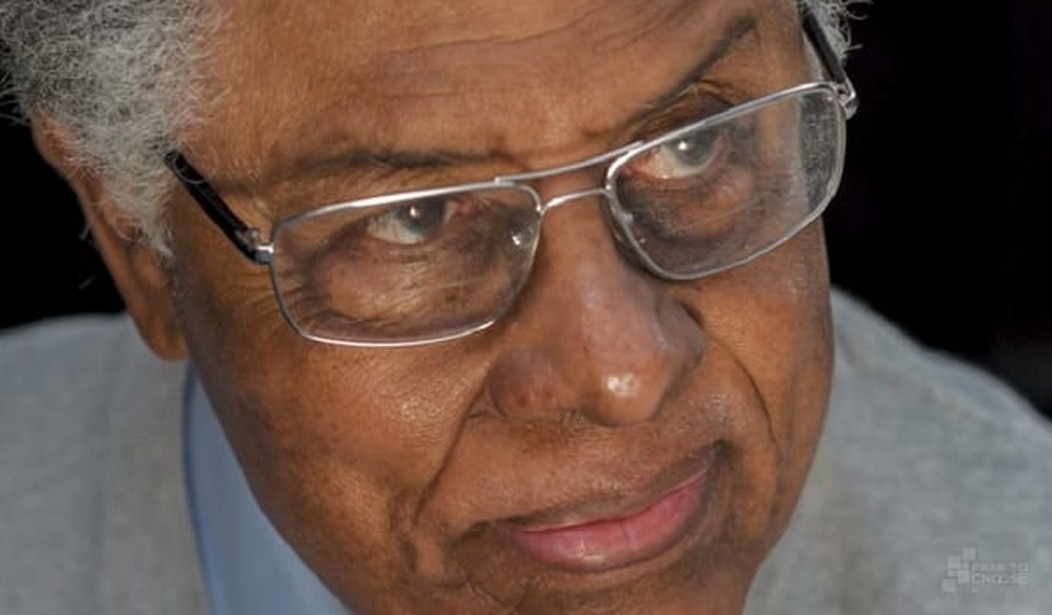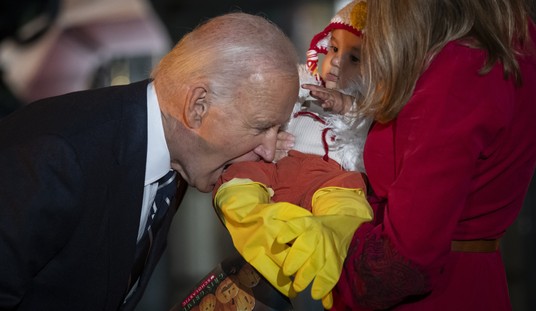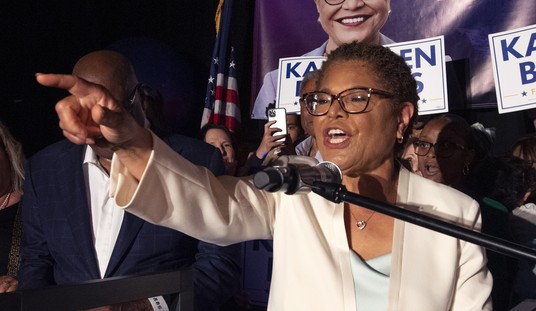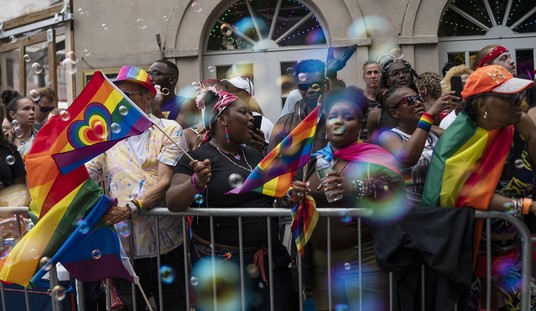RedState’s Brandon Morse wrote a piece Monday on how both the prevailing U.S. culture and the activist left insist on pushing a narrative of white people being responsible for many of the world’s ills — solely because of the color of their skin. [see:
“Mainstream Culture Is Wrong on All Counts About White People”]
And naturally, one of those ills is slavery.
In 2017, my colleague Alex Parker shared a story on Rep. Alexandria Ocasio-Cortez’s support for legislation demanding reparations and “equality” for not just black people but all non-white people — and libertarian writer Thomas Sowell didn’t miss a beat while ripping her words to shreds. When commenting on the New York congresswoman’s prominent role in the Democrat Party constellation, he said simply, “It depends on whether people go by facts or by rhetoric. If they go by rhetoric, she’s a rising star.”
Ouch.
Keep in mind that that was three years after Sowell “retired” from writing his syndicated opinion column, as several of our writers marked as a poignant milestone for conservative thought.
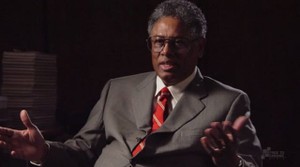
And it’s no surprise that he knew all about AOC’s neo-Marxist tactics…since Sowell himself used to be one:
Dr. Thomas Sowell was a Marxist. Then he worked in the federal government and saw the problems inherent to a centrally-planned economy. He then became an outspoken supporter of a free market system. @yaf #blackhistorymonth pic.twitter.com/JsxYcuYOLM
— Scott Walker (@ScottWalker) February 23, 2021
In a blog on its website, the American Enterprise Institute praised Sowell’s 2011 book, “The Thomas Sowell Reader,” which contains a compilation of essays written across his 30-year career. And in one part, he brought up some truly inconvenient facts about slavery which the left would hate to be widely-shared. And it’s just in time for Black History Month.
Of all the tragic facts about the history of slavery, the most astonishing to an American today is that, although slavery was a worldwide institution for thousands of years, nowhere in the world was slavery a controversial issue prior to the 18th century. People of every race and color were enslaved – and enslaved others. White people were still being bought and sold as slaves in the Ottoman Empire, decades after American blacks were freed.
Everyone hated the idea of being a slave but few had any qualms about enslaving others. Slavery was just not an issue, not even among intellectuals, much less among political leaders, until the 18th century – and then it was an issue only in Western civilization. Among those who turned against slavery in the 18th century were George Washington, Thomas Jefferson, Patrick Henry and other American leaders. You could research all of the 18th century Africa or Asia or the Middle East without finding any comparable rejection of slavery there. But who is singled out for scathing criticism today? American leaders of the 18th century.
Deciding that slavery was wrong was much easier than deciding what to do with millions of people from another continent, of another race, and without any historical preparation for living as free citizens in a society like that of the United States, where they were 20 percent of the population.
It is clear from the private correspondence of Washington, Jefferson, and many others that their moral rejection of slavery was unambiguous, but the practical question of what to do now had them baffled. That would remain so for more than half a century.
In 1862, a ship carrying slaves from Africa to Cuba, in violation of a ban on the international slave trade, was captured on the high seas by the U.S. Navy. The crew were imprisoned and the captain was hanged in the United States – despite the fact that slavery itself was still legal at the time in Africa, Cuba, and in the United States. What does this tell us? That enslaving people was considered an abomination. But what to do with millions of people who were already enslaved was not equally clear.
That question was finally answered by a war in which one life was lost [620,000 Civil War casualties] for every six people freed [3.9 million]. Maybe that was the only answer. But don’t pretend today that it was an easy answer – or that those who grappled with the dilemma in the 18th century were some special villains when most leaders and most people around the world saw nothing wrong with slavery.
Just from that excerpt alone, it’s clear why Sowell’s work continues to reverberate throughout American culture; actor Denzel Washington boldly spoke out in a recent interview promoting his new movie, “The Little Things,” explaining that those calling for police departments across the country to be decimated in the name of “reimagining” them as some Marxist version of a utopian, social services department are making a mistake. Not exactly the party line in today’s Hollywood.
NY Post: (emphasis mine)
The 66-year-old “Malcolm X” actor said he’s had a first-hand look at the value of police work, after playing law enforcement in several roles throughout his career.
“I have the utmost respect for what they do, for what our soldiers do, (people) that sacrifice their lives. I just don’t care for people who put those kind of people down,” Washington told Yahoo! Entertainment.
“If it weren’t for them, we would not have the freedom to complain about what they do.”
Washington added that a ride-along with an officer helped him understand that truth, “[and] I never forgot it, what our law enforcement people have to deal with moment to moment, second to second.” (By the way, stay tuned this weekend for a new VIP piece on “The Little Things.”)
As Ronna McDaniel, the chairwoman of the RNC, pointed out in a recent tweet, the natural home for great thinkers like Sowell is in the Republican camp:
We are the Party of Lincoln & the Party of Kay Coles James, Condoleezza Rice, Herman Cain, Dr. Ben Carson, Ida B. Wells, Thomas Sowell, & the list goes on.
Black Republican candidates are running all around the country, and I am proud to support them.https://t.co/rTOGo3Mxrg
— Ronna McDaniel (@GOPChairwoman) February 19, 2021
She wrote in the linked piece, ” that:
Black History Month is not just about Black Liberal history.
Well said.
“Thomas Sowell: Common Sense in a Senseless World,” a documentary about Sowell’s life and writings by Wall Street Journal editor and writer Jason Riley, was recently released to digital platforms and has started circulating on social media this month. Take a look at the trailer below, via Free To Choose Media’s YouTube channel:

